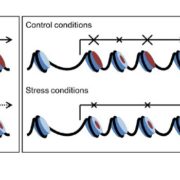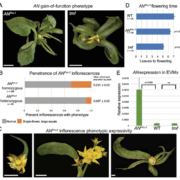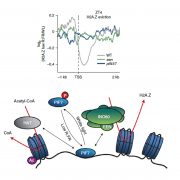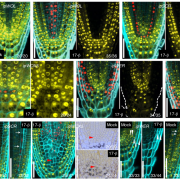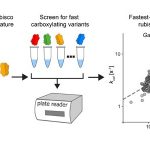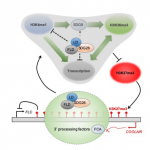Genome-wide analysis of the U-box E3 ubiquitin ligase enzyme gene family in tomato (Sci. Reports)
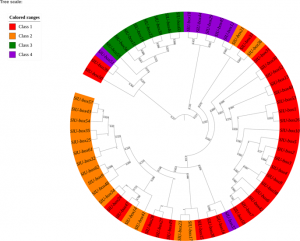 Ubiquitination is a process of adding ubiquitin (a small regulatory protein) to a substrate protein, leading to its degradation. A wide variety of cellular processes necessary for plant growth and development are regulated by ubiquitination. E3 ubiquitin ligases are the largest family of proteins involved in the ubiquitination process and act through transferring target proteins to the degradation pathway. The U-box E3 gene family members are prevalent in plants, however, their evolution and role in promoting development in tomatoes is not well understood. In this study, Sharma and Taganna analyzed the functions of the U-box E3 ubiquitin ligase enzyme gene family in tomato, using a genome-wide study. They identified 62 U-box genes in the tomato genome and reported some of the biochemical and physicochemical properties of the gene family. Through studying gene expression profiles, the authors reported a strong association of the U-box E3 ubiquitin ligases in the development of tomato plant tissues and participation in the stress and hormonal response pathways. This study highlights the role of U-box E3 ligases as genes that can be targeted for the development of crop varieties with increased immunity, yield, and stress tolerance. (Summary by Modesta Abugu @modestannedi). Sci. Reports 10.1038/s41598-020-66553-1
Ubiquitination is a process of adding ubiquitin (a small regulatory protein) to a substrate protein, leading to its degradation. A wide variety of cellular processes necessary for plant growth and development are regulated by ubiquitination. E3 ubiquitin ligases are the largest family of proteins involved in the ubiquitination process and act through transferring target proteins to the degradation pathway. The U-box E3 gene family members are prevalent in plants, however, their evolution and role in promoting development in tomatoes is not well understood. In this study, Sharma and Taganna analyzed the functions of the U-box E3 ubiquitin ligase enzyme gene family in tomato, using a genome-wide study. They identified 62 U-box genes in the tomato genome and reported some of the biochemical and physicochemical properties of the gene family. Through studying gene expression profiles, the authors reported a strong association of the U-box E3 ubiquitin ligases in the development of tomato plant tissues and participation in the stress and hormonal response pathways. This study highlights the role of U-box E3 ligases as genes that can be targeted for the development of crop varieties with increased immunity, yield, and stress tolerance. (Summary by Modesta Abugu @modestannedi). Sci. Reports 10.1038/s41598-020-66553-1


